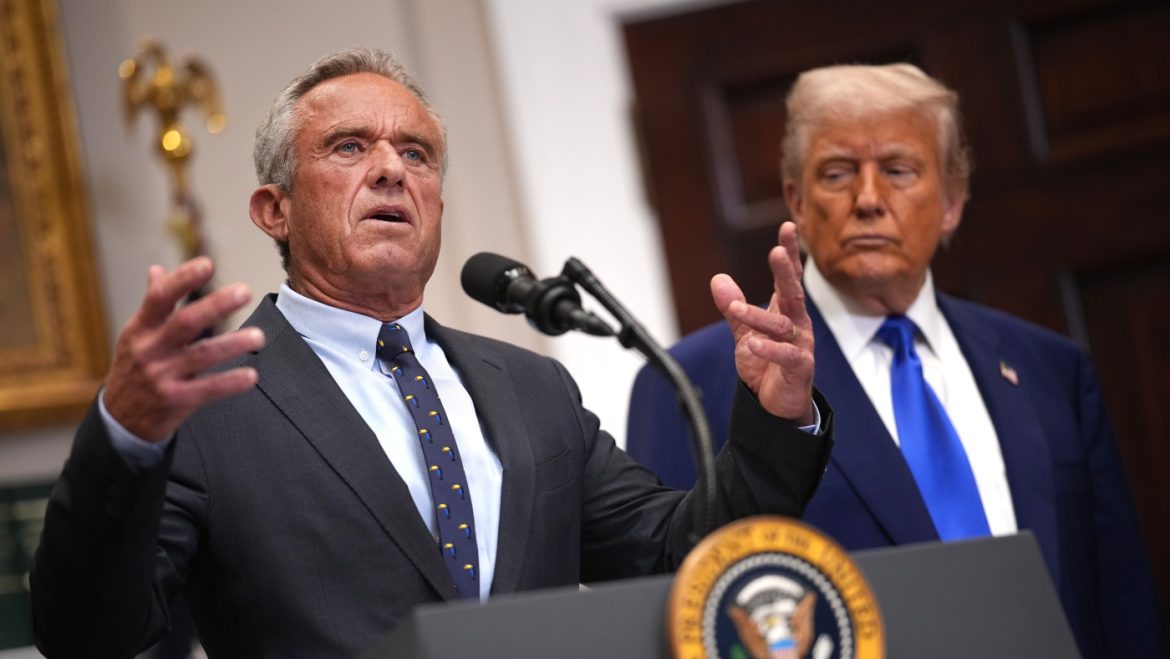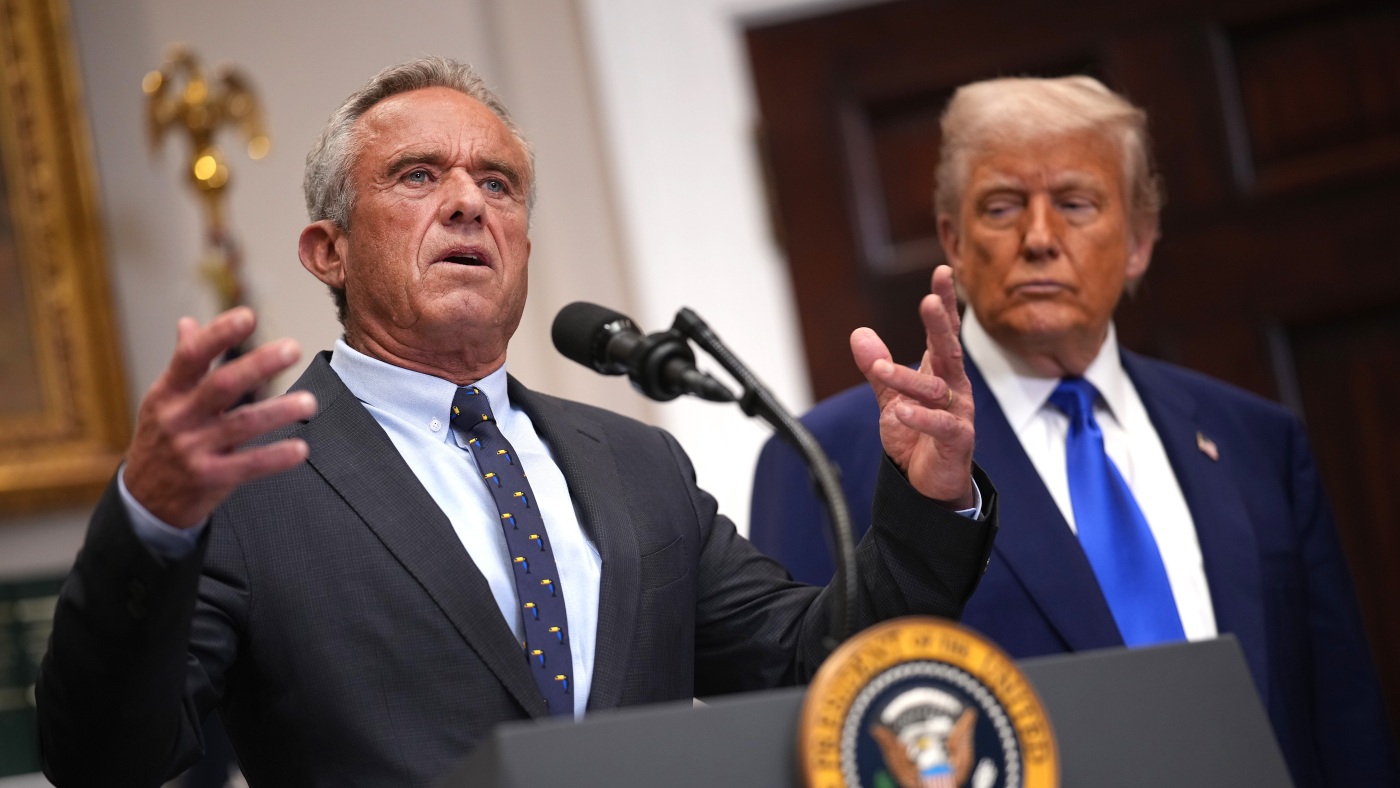The Sweeping Changes and Political Implications of RFK Jr.’s Health Agency Overhaul
A Radical Vision for Health and Human Services
Robert F. Kennedy Jr.’s appointment as the Secretary of Health and Human Services (HHS) under President Trump has sparked a whirlwind of controversy and change. Kennedy’s vision for HHS is nothing short of radical, aiming to eliminate what he terms an “alphabet soup” of health agencies while preserving their core functions. This overhaul is part of a broader plan to “Make America Healthy Again,” a slogan that encapsulates Kennedy’s ambitious goals for the nation’s health.
Kennedy’s plan involves slashing the HHS workforce by approximately 20,000 employees, a move he believes will streamline operations and improve efficiency. The savings from these cuts are estimated to be around $1.3 billion annually. This drastic reduction in staff is part of a broader strategy to eliminate entire departments and agencies, consolidating their functions into more streamlined operations. Kennedy’s approach is not just about cost-cutting; it’s about redefining the mission of HHS to focus on improving the health of Americans and boosting agency morale.
The Political Landscape and Congressional Involvement
On Wednesday, Kennedy heads to Capitol Hill to promote and defend his massive overhaul of HHS. This visit comes at a crucial time, as Congress is set to have a say in the implementation of these changes. The political landscape is fraught with tension, as Kennedy’s confirmation as HHS Secretary was met with loud objections from Democrats. The vote was close, with a 52 to 48 split, reflecting the deep divide in opinions about his leadership.
Kennedy’s tenure at HHS marks a significant shift in federal health policy. His vocal criticism of pharmaceutical companies and public health institutions has long been a part of his public persona. Now, as the head of HHS, he is in a position to reshape national healthcare policy in ways that reflect his long-held beliefs and controversial views.
Controversial Stances and Public Reaction
Kennedy’s plans to ban synthetic dyes from the food supply and remove fluoride from water have met with major pushback from the food industry. His controversial remarks about vaccines and his history of false statements and beliefs in debunked conspiracy theories have raised concerns among health experts. Kennedy’s confirmation hearings were marked by intense questioning, particularly about his views on vaccines and abortion, areas where his stances have been contentious.
Despite the controversy, Kennedy remains steadfast in his vision. His plans to eliminate an “alphabet soup” of departments and agencies while preserving their core functions are seen as a disruptive force within the health sector. This disruption is not without its risks, as health experts worry about the potential impact on public health initiatives and the integrity of scientific research.
The Impact on Federal Health Agencies
Kennedy’s overhaul of HHS is set to have far-reaching implications for federal health agencies. The Food and Drug Administration (FDA), for instance, is expected to see major shifts under his leadership. Kennedy has been critical of the FDA, describing it as a “sock puppet” for the industries it regulates. His plans to clear out entire departments of the FDA and restructure its operations are likely to face significant resistance from within the agency and from industry stakeholders.
The Centers for Disease Control and Prevention (CDC), the National Institutes of Health (NIH), and other key agencies are also in the line of fire. Kennedy’s vision for a streamlined, efficient HHS means that these agencies will need to adapt to significant changes in their operations and missions. The consolidation of functions and the reduction in staff will require a careful balancing act to ensure that core public health functions are not compromised.
The Future of Health Policy Under Kennedy
Kennedy’s tenure at HHS is still in its early stages, but the changes he has already set in motion are dramatic. His plans to slash 10,000 jobs and eliminate entire departments are part of a broader strategy to reshape the nation’s health policy. The political and public health implications of these changes are vast and complex.
As Kennedy continues to promote and defend his overhaul, the coming weeks and months will be crucial. Congressional oversight and public scrutiny will play a significant role in shaping the future of HHS under his leadership. The success or failure of Kennedy’s vision will depend on his ability to navigate the political landscape, address public concerns, and implement his plans effectively.
Conclusion: A New Era for Health Policy
Kennedy’s overhaul of HHS represents a new era for health policy in the United States. His radical vision for a streamlined, efficient health department is set to reshape the nation’s approach to public health. The coming weeks and months will be pivotal as Kennedy’s plans are put into action and face scrutiny from Congress and the public. The future of health policy under Kennedy is uncertain, but one thing is clear: the landscape of federal health agencies is set for a dramatic transformation.


